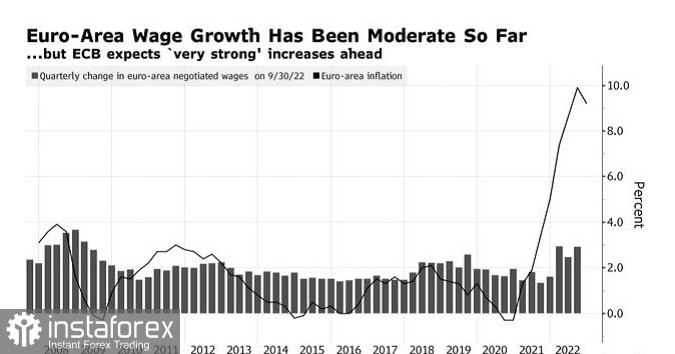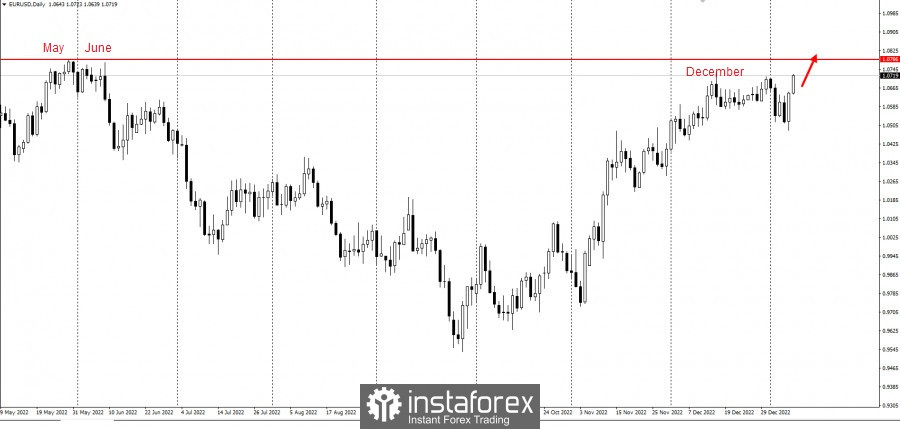
The European Central Bank forecasts wage growth to be very strong in the coming quarters, strengthening the case for further rate hikes.
In an Economic Bulletin article published on Monday, the bank said wage growth has been "relatively moderate" since the start of the pandemic, but is now close to its long-term trend. And, over the next few quarters, it is expected to be very strong compared to historical patterns.
"This reflects resilient labor markets, which so far have not been significantly affected by the economic slowdown, an increase in the national minimum wage and some lag between wages and the high rate of inflation," the article explained.

Over the last 1.5 years, price growth has exceeded the ECB's target of 2%. There is a chance that it will exceed 10% at the end of 2022 as the core inflation indicator, which excludes volatile goods such as food and energy, reached a record high in December.
With forecasts showing that 2% inflation will not be achievable before the end of 2025 and unions pushing for generous compensation packages, the ECB conducted an unprecedented series of rate hikes, pushing the deposit rate up to 2% last month.
Against this backdrop, EUR/USD continued to rally, approaching the top of May-June last year.

To avoid a wage and price spiral, ECB chief Christine Lagarde flagged another half-point hike at the February meeting. After all, weaker economic growth is unlikely to help in the near term, especially as a shortage of skilled labor encourages businesses to retain workers and pay them well.
ECB chief economist Philip Lane noted that it will take several years for wages to fully adjust to the recent shocks, but "there are signs of stronger wage growth in the service sector", primarily in those where there is a shortage of staff. However, the expected slowdown in economic growth in the euro area and uncertainty about the economic outlook are likely to put downward pressure in the near term.





















